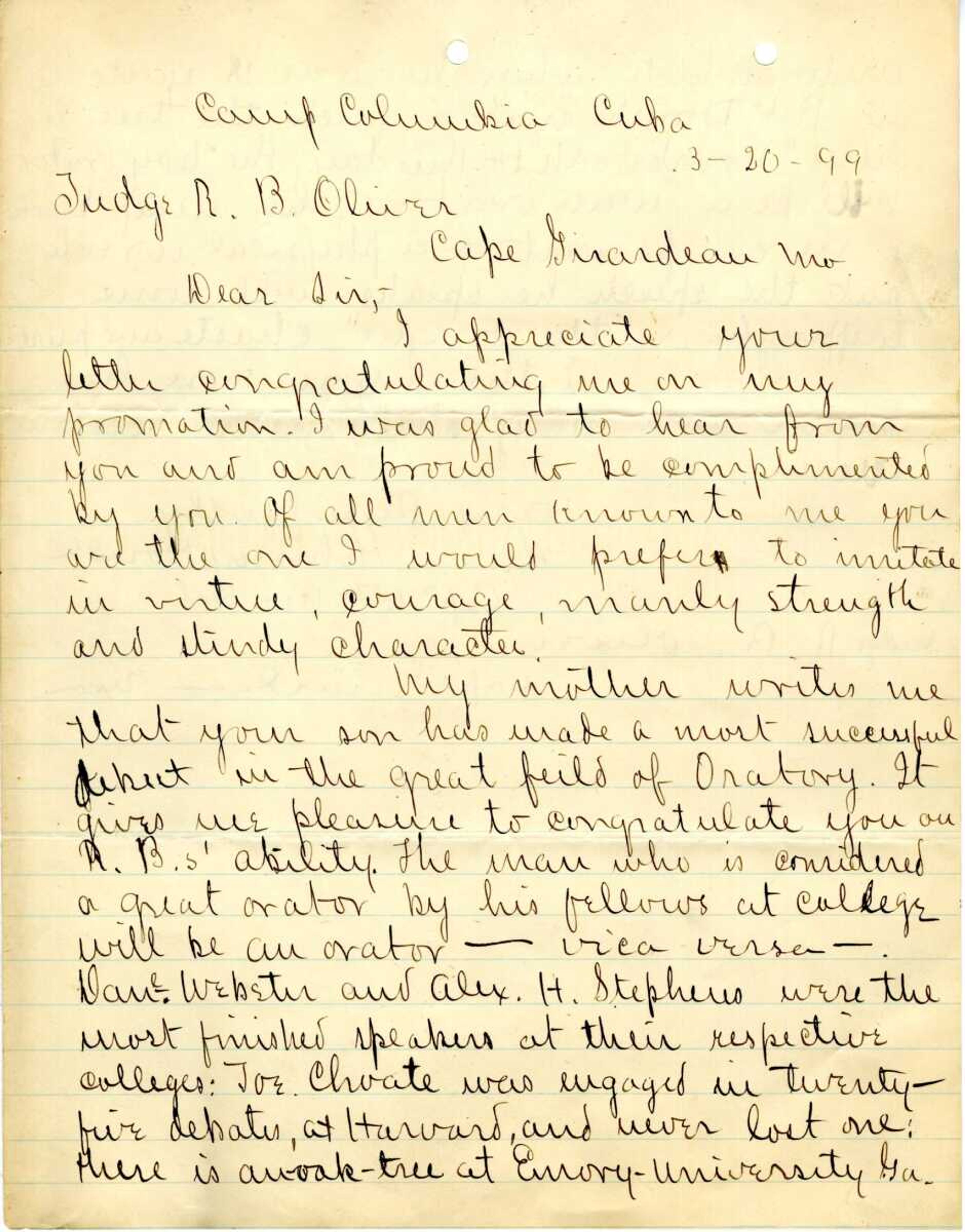Giboney Houck's Spanish-American War service
The Spanish-American War has been labeled America's forgotten war because of its short duration. The Cuban portion was three months long and took place entirely on Cuban soil. Theodore Roosevelt and his Rough Riders' charge up San Juan Hill has been the most recognized event from this war. ...
The Spanish-American War has been labeled America's forgotten war because of its short duration. The Cuban portion was three months long and took place entirely on Cuban soil. Theodore Roosevelt and his Rough Riders' charge up San Juan Hill has been the most recognized event from this war. What readers may not realize is Missouri provided manpower for this conflict, by organizing a National Guard unit for service to the United States. One of the members of the unit, Giboney Houck, the son of railroad tycoon Louis Houck, was only 20 years old. Prior to the declaration of war by the United States, Houck was studying law at the University of Missouri in Columbia. He had some military training in the university cadets, but according to one newspaper account, he attended drill irregularly and lacked military discipline. He enlisted as a private in an infantry unit and was sent with the unit to Chickamauga, Tennessee. He was not received well by his fellow soldiers or officers in the unit. In June 1898, Missouri Gov. Lon V. Stephens appointed Houck as a battalion adjutant with the rank of first lieutenant. This appointment was viewed by them as purely political, and Houck was not welcome in the unit. The Macon Citizen wrote in February 1899, after Houck was commissioned a captain, that the colonel commanding the regiment of the Guard infantry stated he "looked the boyish figure over, heard his thin, piping voice, asked a few questions and convinced himself of the lamentable ignorance of the appointee."
Company E was organized in Doniphan, Missouri, and mustered into federal service at Jefferson Barracks in St. Louis on July 20, 1898. The company departed for Jacksonville, Florida, for training. They were still being trained when the war officially ended Dec. 10, 1898, with the company seeing no combat. The regiment did ship over to Cuba in December, where they made camp in Camp Columbia. It was at this camp where Houck wrote to Robert B. Oliver Sr., on March 20, 1899, thanking him for congratulating him on his promotion to captain. He was honored to receive the acknowledgement from him as he stated, "Of all men known to me you are the one I would prefer to imitate in virtue, courage, manly strength and sturdy character." The rest of the letter discusses his opinion of Oliver's son, Robert B. Oliver Jr.'s successful oratory debate. He comments being a good debater will get him far in life. He mentions famous orators such as Daniel Webster, Alexander H. Stephens, Joseph Choate and Robert Toombs.
Houck and the rest of the members of the infantry regiment were sent back to Savannah, Georgia, where they were mustered out May 10, 1899.
In December 1899, Houck was promoted to major of the Missouri National Guard as part of the staff of Brigadier-General Harvey C. Clark.
Connect with the Southeast Missourian Newsroom:
For corrections to this story or other insights for the editor, click here. To submit a letter to the editor, click here. To learn about the Southeast Missourian’s AI Policy, click here.











